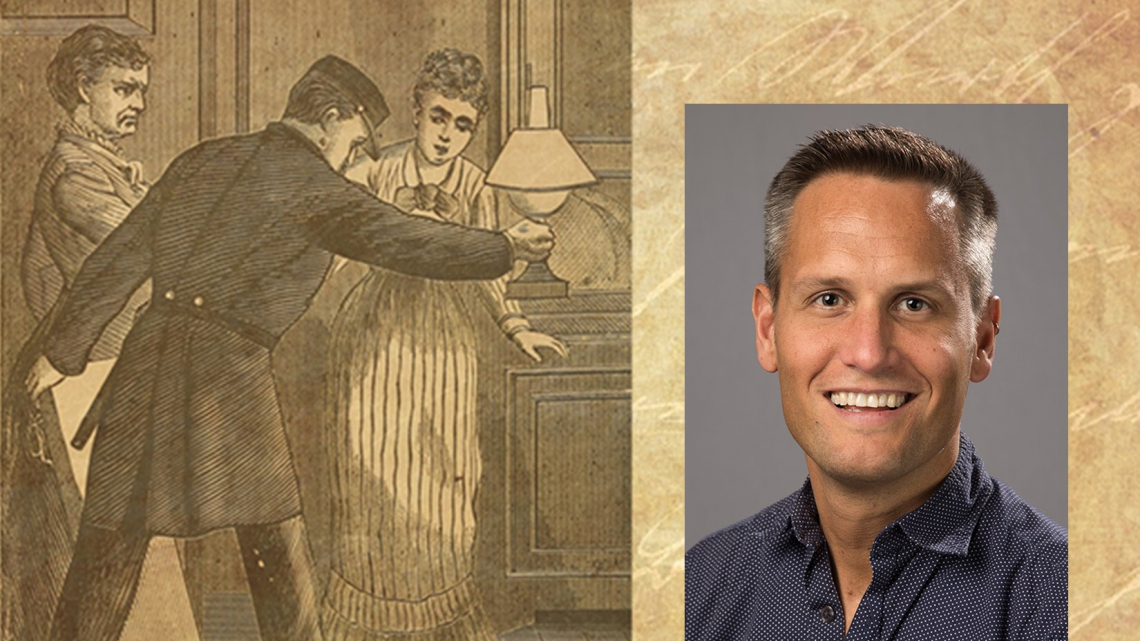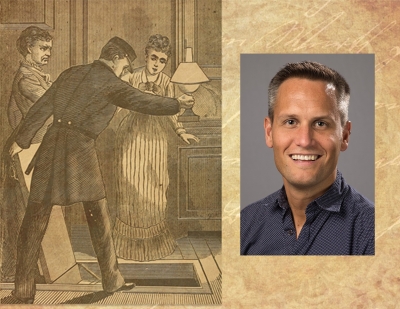
By Luoshu Zhang, Phd Candidate, Department of English

On January 30, 2020, Nicholas Syrett, a historian and chair of the Women, Gender, and Sexuality Studies Program at the University of Kansas, gave a work-in-progress lecture, “The Notorious Madame Restell: Childhood and the Criminalization of Abortion in Nineteenth-Century America,” sponsored by the Program in Gender, Sexuality and Feminist Studies and the History Department. The focus was the changing discourse of the value of children and definitions of childhood that led to the criminalization of abortion by 1881 in the US. While scholars have pointed out a number of factors behind the criminalization of abortion, such as rejection of white middle-class women’s sexual agency, condemnation of increased unaccountable sex that led to illegitimate pregnancy, and a decline in birthrate by white middle-class women, Syrett considers how a moral panic about abortion and baby farms became linked to the “the sacralization of children and childhood.”
Using the famous case of “Madame Restell,” Syrett traces the shifting narratives around abortionists and the institutions they were associated with—abortion clinics, lying-in hospitals, and sites from which abandoned infants could be adopted (“baby farms”) – as well as the impact of this discourse on public perceptions of abortion and reproduction. The rhetorical slippage between “fetus” and “child” had emerged before abortion was criminalized. Conflating abortion with child murder and kidnapping and depicting abortionists and administrators of baby farmers as diabolical figures seeking to profit from ending the lives of innocent children facilitated the rise of the figure of the child and childhood as sacred and priceless. Syrett’s new work fits within his longstanding research interests in the history and politics of age in the United States, especially as it relates to gender and sexuality.
As we have explored in Frances Hasso’s graduate seminar Governing Race, Sex and Reproduction this term, technologies and discourses of reproduction, birth control, and motherhood are inseparable from the ideologically freighted social and political contexts from which they emerge.